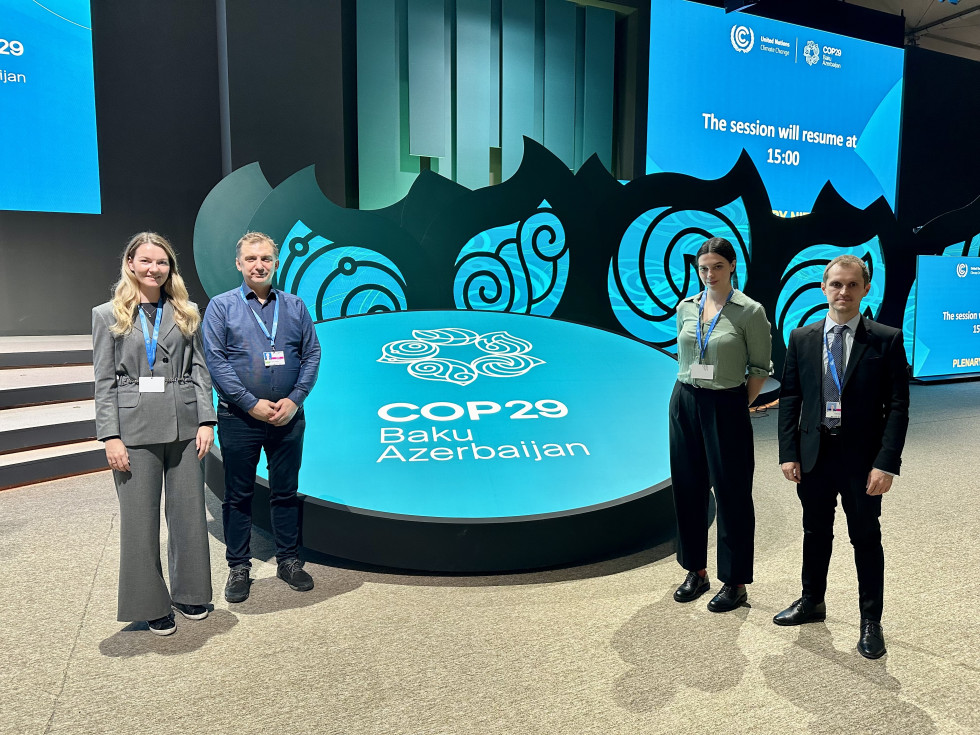Conference of the Parties to the UN Framework Convention on Climate Change starts its 29th meeting
On the day dedicated to finance, the meeting will also be attended by Deputy Prime Minister and Minister of Finance Klemen Boštjančič. At the EU working level, Slovenia will be represented by a negotiating team consisting of experts from the Ministry of the Environment, Climate and Energy and the Ministry of Agriculture, Forestry and Food. The lead negotiator is Tina Kobilšek.
The conference started today, on 11 November, with the opening session at which Azerbaijan’s Minister of Ecology and Natural Resources Mukhtar Babayev was elected the COP29 President. In his first speech in the new role, he highlighted that the current global climate policies were not adequate and were leading us to three degrees of warming, which would have catastrophic consequences, adding that climate change was already having visible effects. He said that Azerbaijan would provide strong leadership and endeavour for an ambitious and balanced conference outcome. Their main priority will be climate finance, the area in which conclusions must be adopted despite the complexity and difficulty of negotiations.
The conference will continue with the World Leaders Climate Action Summit on 12 and 13 November. Minister Kumer will deliver Slovenia's statement at the second part of the segment intended for national statements to be held in the second week. The negotiations at the expert level in the first week of the meeting will be followed by the ministerial segment and the final stage of negotiations at the political level in the second week, when decisions will be adopted on particular agenda items of all working bodies of the UNFCCC.
This year's COP will focus on an agreement on the new collective quantified goal (NCQG) for climate action in developing countries, which will apply from 2025 and will supersede the current goal of $100 billion per year. In setting the new goal, the Parties will have to take into account the needs and priorities of developing countries, while determining financing sources, including private ones, and deciding on the expansion of the donor base. Another topic of climate finance discussions will be the alignment of financial flows, both public and private, with the Paris Agreement goals.
An important discussion topic will be an agreement on further steps to be taken with regard to the first global stocktake (GST) of Paris Agreement implementation, which was concluded at COP28, held last December in Dubai. The Parties are encouraged to consider the GST findings in preparing their nationally determined contributions (NDCs) and other strategic documents. It is of key importance that GST commitments be implemented in full, with regard to both finance and climate change mitigation and adaptation.
Further discussions will also be held on phasing out fossil fuels and removing fossil fuel subsidies, which is essential for reducing GHG emissions, as was also highlighted in the Sixth Assessment Report of the Intergovernmental Panel on Climate Change (IPCC). In this context, the Parties will continue their discussion on the implementation of global targets for renewable energy sources (RES) and energy efficiency adopted at the last year's COP28 in Dubai.
Another key COP29 topic will be climate change adaptation. Priority will be given to the operationalisation of the global goal on adaptation (GGA) by introducing indicators to monitor implementation by areas. Loss and damage will also be discussed, with a focus on the fund established at COP27, which provides additional funds to assist developing countries in responding to climate loss and damage and which complements the existing sources and initiatives under the UNFCCC and the Paris Agreement.


